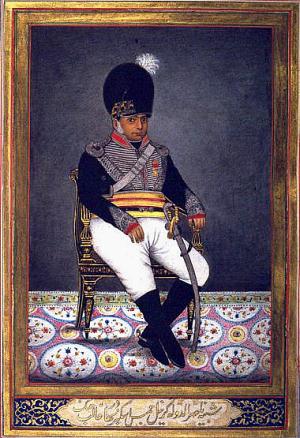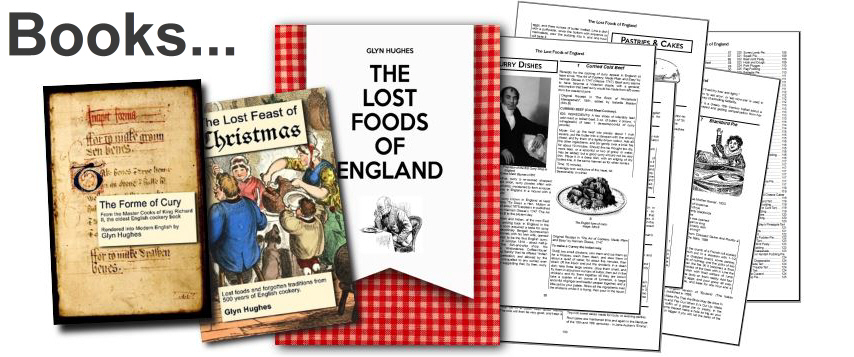

|
 A highly spiced mango chutney.  Col. Skinner (Sikander Sahib)  Original Receipt from ‘News Today‘ Newspaper, Dhaka, Bangladesh Original Receipt from ‘News Today‘ Newspaper, Dhaka, BangladeshColonel Skinner’s chutney The original recipe instructs that the filled jars of chutney be placed out in the sun for a fortnight! I have made the rather necessary amendments. Quantity: approximately 2 lb 12 oz dried mangoes1/2 lb salt (original) 1/4 lb garlic, smashed, measurement; see peeled and chopped Notes below and adjust 1/2 lb unrefined brown sugar to taste) 1/2 lb fresh ginger root, 1/4 lb chillies (original peeled and chopped measurement, adjust to taste) 1/2 lb raisins 2 pints distilled vinegar 1 Use a food processor with a metal blade to grind all the ingredients (except the vinegar) in several batches, accumulating everything in a large preserving pan. 2 Add the vinegar and stir well. Bring to a boil over moderate heat. Reduce the heat and let the chutney simmer for 1 hour. 3 While it is still warm, transfer it into sterilized jars and seal. Notes: If you find the dried mangoes too tough to be handled in your processor, you may first soak them until they are pliable. Squeeze out the excess liquid before placing them in the container. The original quantity of salt, which I have given here, seems excessive. It may have been necessary for its preservative qualities in the Indian climate. I suggest you reduce it to your own liking, but do not omit it altogether. Similarly, the chillies are of a quantity to make the chutney quite fiery, but that was how ex-colonials of old liked it. Please adjust accordingly. The son of a British Army officer and his Rajput wife, James Skinner (1778-1841, known as ‘Sikander Sahib’) founded the irregular cavalry called ‘Skinner’s Horse’ or the ‘Yellow Boys’ after their distinctive uniform, the most famous cavalry regiment in the India of the Raj. Brought up by Christian and Hindu parents, he married a Muslim and, true to his background, gave thanks for his recovery from battle wounds by building a church, a mosque and a temple in Delhi. See: Chutneys  Image: The Khaki Kook Book, 1917  |
|
MORE FROM Foods of England... Cookbooks ● Diary ● Index ● Magic Menu ● Random ● Really English? ● Timeline ● Donate ● Royalty ● English Service ● Food Map of England ● Lost Foods ● Accompaniments ● Biscuits ● Breads ● Cakes and Scones ● Cheeses ● Classic Meals ● Curry Dishes ● Dairy ● Drinks ● Egg Dishes ● Fish ● Fruit ● Fruits & Vegetables ● Game & Offal ● Meat & Meat Dishes ● Pastries and Pies ● Pot Meals ● Poultry ● Preserves & Jams ● Puddings & Sweets ● Sauces and Spicery ● Sausages ● Scones ● Soups ● Sweets and Toffee ● About ... ● Bookshop ● Email: [email protected] COPYRIGHT and ALL RIGHTS RESERVED: © Glyn Hughes 2022 BUILT WITH WHIMBERRY |